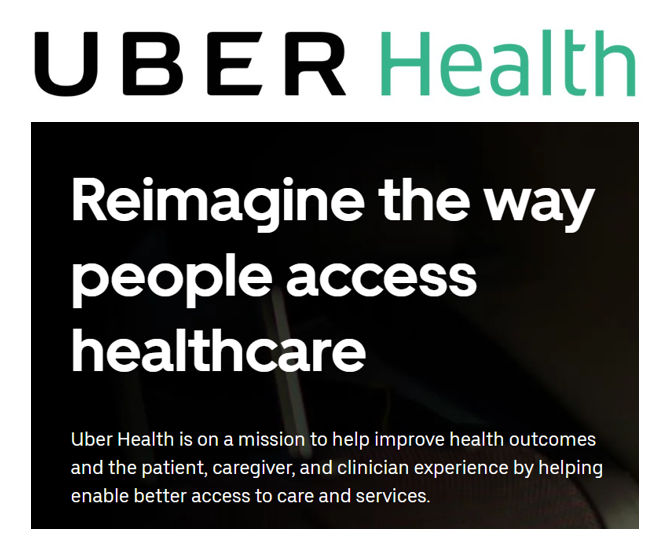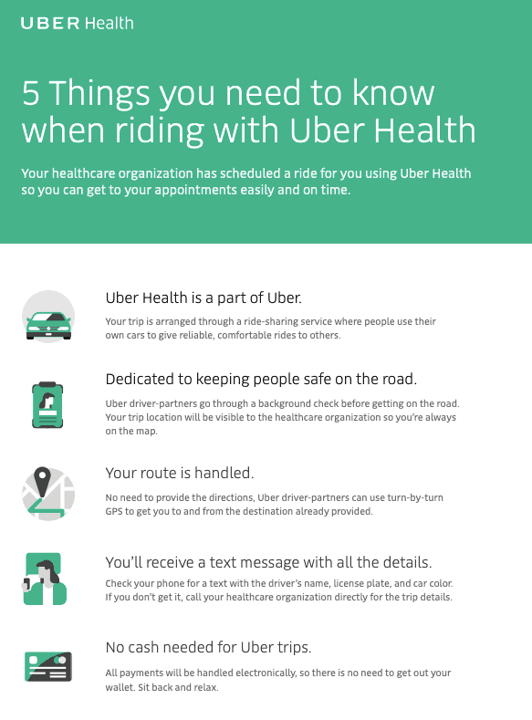We often talk about “the last mile” as the difficulty in getting broadband to cover folks in rural areas or bringing a product to fruition for delivery in a market.
Uber Health is trying to solve another riff on the “last mile” challenge, which is expanding delivery of groceries and over-the-counter medicines to people who may be cut-off from transportation options, compelled to stay home due to physical limitations, or otherwise simply demanding the convenience of home delivery for basic daily needs related to their health. The service will be enabled through Uber Eats.
“Value-based care is the future of healthcare, but it’s complex and labor-intensive to deliver and scale. Uber Health addresses this challenge head-on. Our platform streamlines coordination across multiple benefits—non-emergency medical transportation, prescription delivery, and food and over-the-counter medication delivery, empowering payers and providers to support patients beyond the four walls of a medical office. And, because our platform is built on the largest mobility network in the world, we’re uniquely capable of meeting these needs and unlocking the potential of value-based care at scale,” Caitlin Donovan, Global Head of Uber Health, said in this press release announcing the company’s new program expanding their health/care footprint.

Uber Health was established in 2018, by now amassing over 3,000 health care clients including Boston Medical Center which has leveraged Uber Health transportation to streamline sickle cell patients’ transport to doctors’ appointments, bolstering outcomes and families’ quality of life.
The platform is designed to streamline interactions and coordination between providers and payers, and will be populated with patient benefit and eligibility data to enable providers to tap into patients’ health plan benefits.
For more details on Uber Health, check out their video here:
Health Populi’s Hot Points: Uber Health has positioned itself as part of the value-based health ecosystem, supporting population health and patient outcomes.
I was particularly interested in language in the press release pointing out that Uber Health’s grocery delivery taps into the company’s existing platform of a nationwide community of grocery and convenience stores — “unlocking the value of food as medicine at national scale.”
The Uber Health website asserts that, “We help complete the picture of care for healthcare organizations.”
I see the expansion of Uber Health as helping to enable scaling health care interoperability with human touch. This effort connects many dots in the challenges patients face vis-à-vis their personal social determinants and drivers of health, from food and transportation to access to medicines — both prescribed and over-the-counter. Over time, one can imagine other products and services that can be bundled into the portfolio of offerings as our homes continue to evolve as our health hubs.




 I am so grateful to Tom Lawry for asking me to pen the foreword for his book, Health Care Nation,
I am so grateful to Tom Lawry for asking me to pen the foreword for his book, Health Care Nation,  Thanks to Feedspot for naming this blog, Health Populi, as a
Thanks to Feedspot for naming this blog, Health Populi, as a